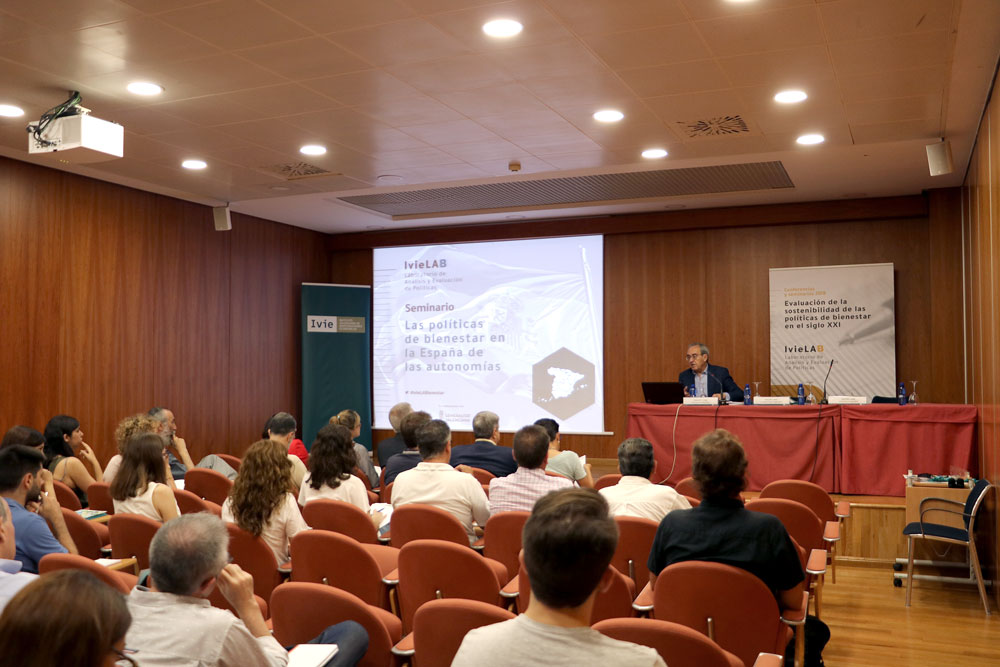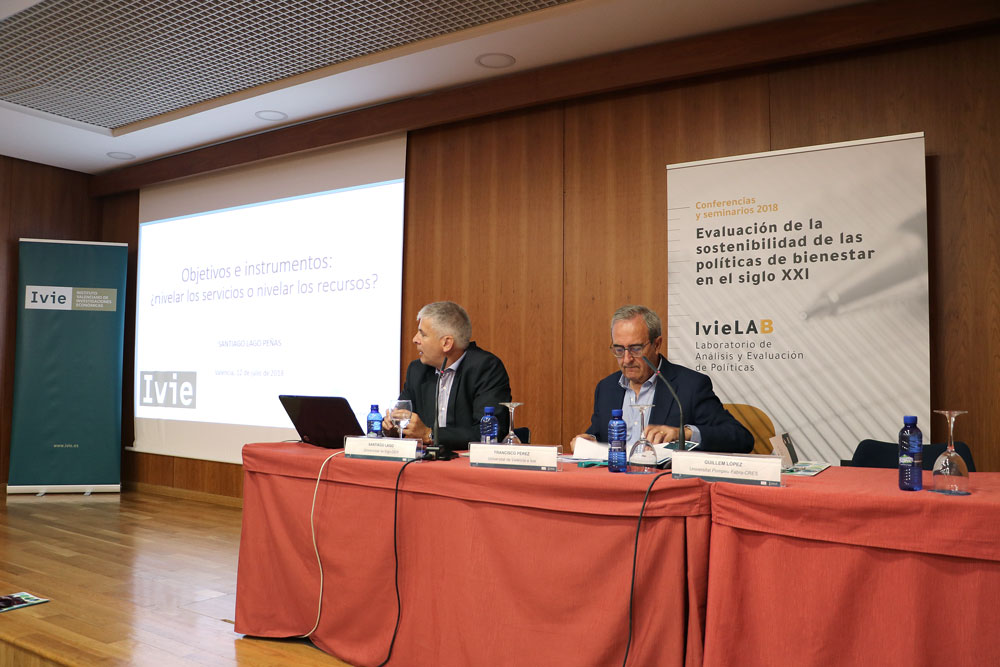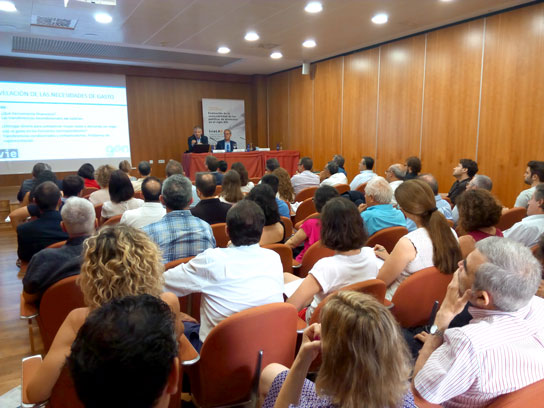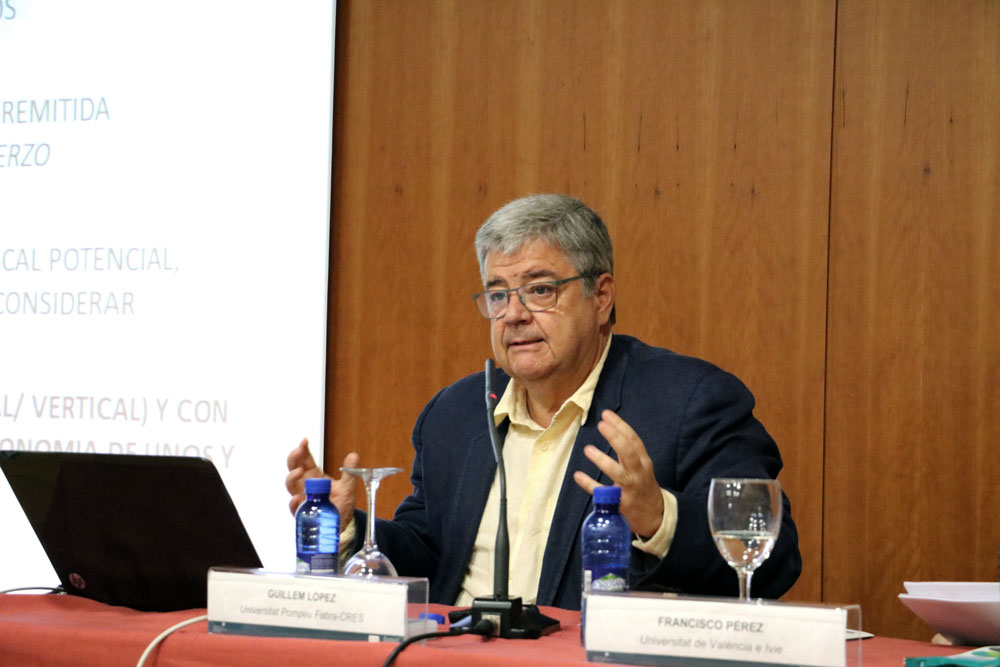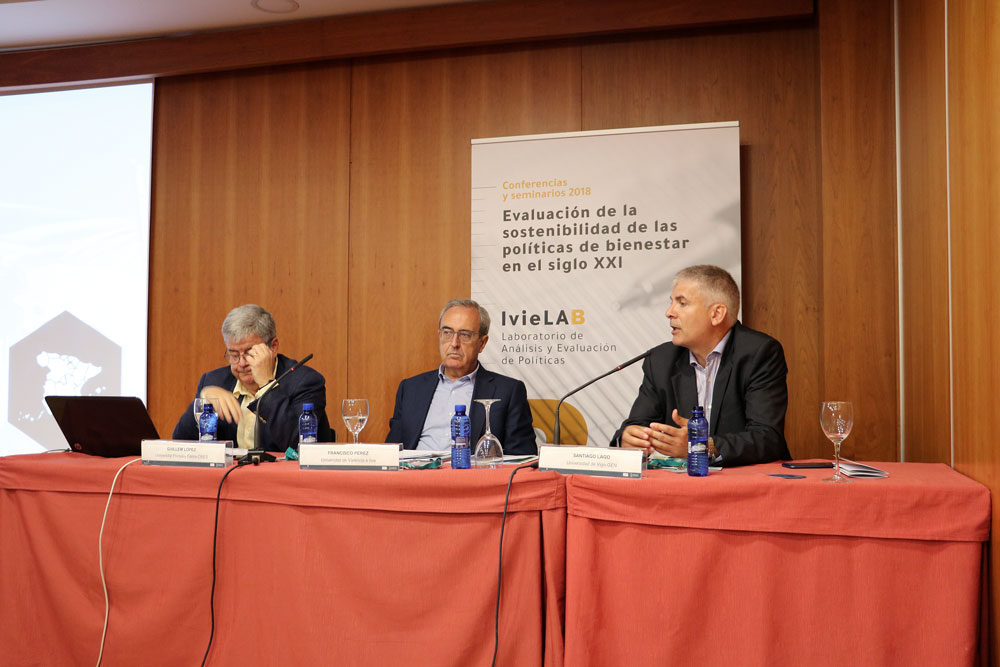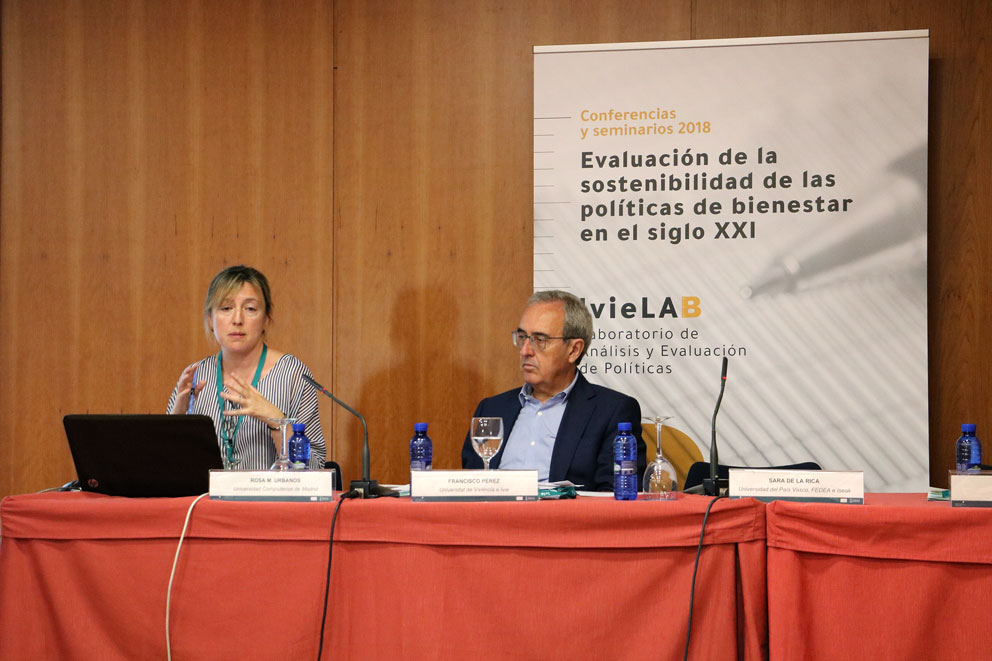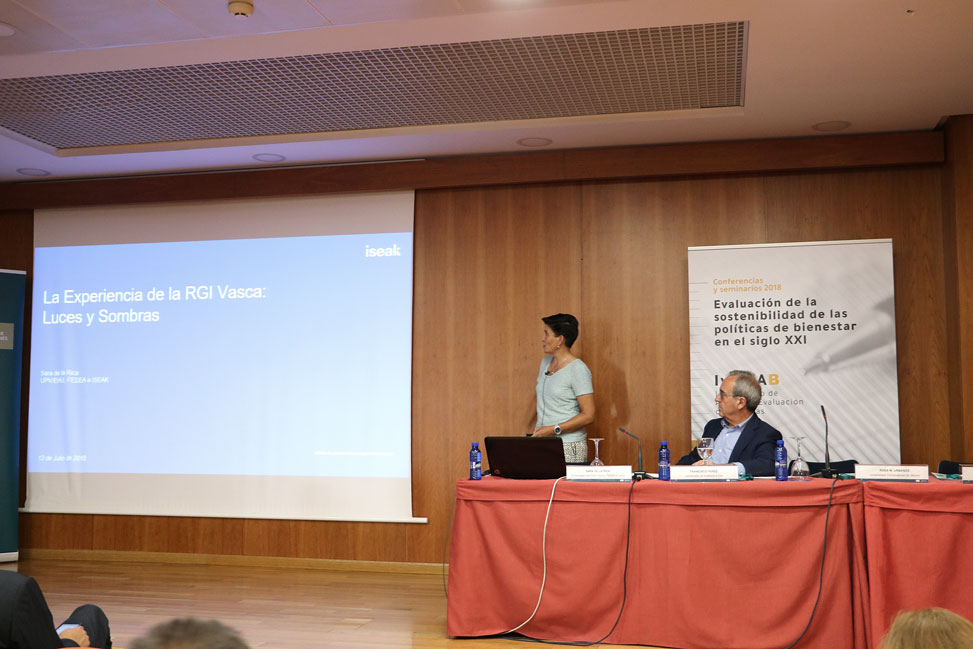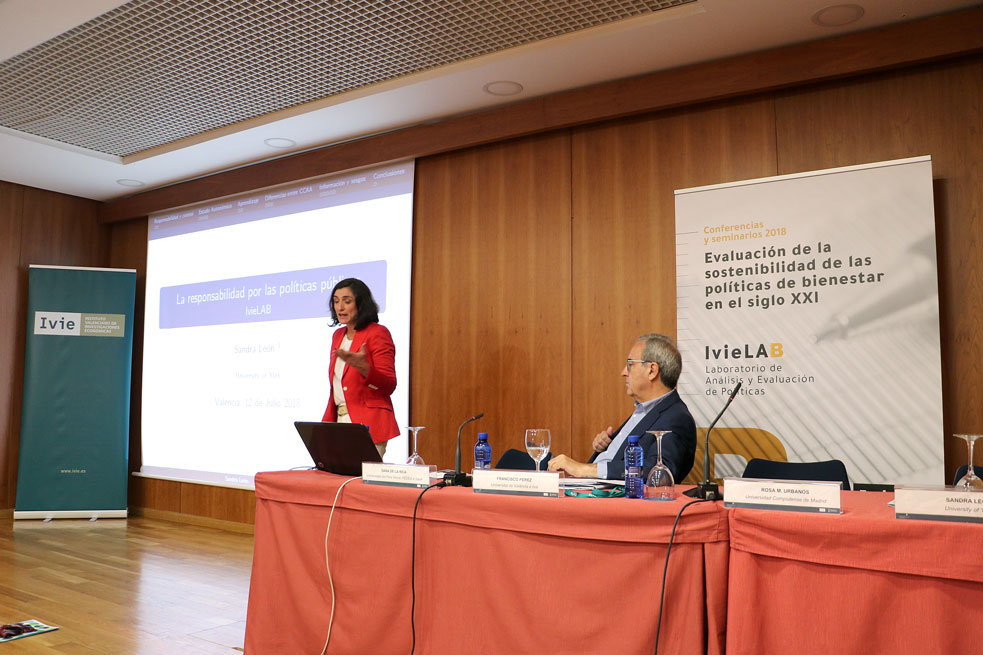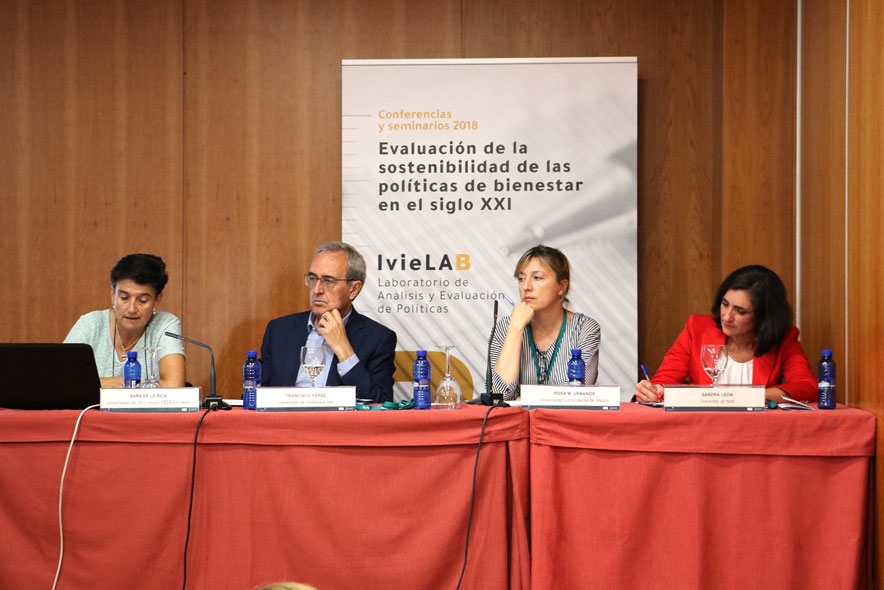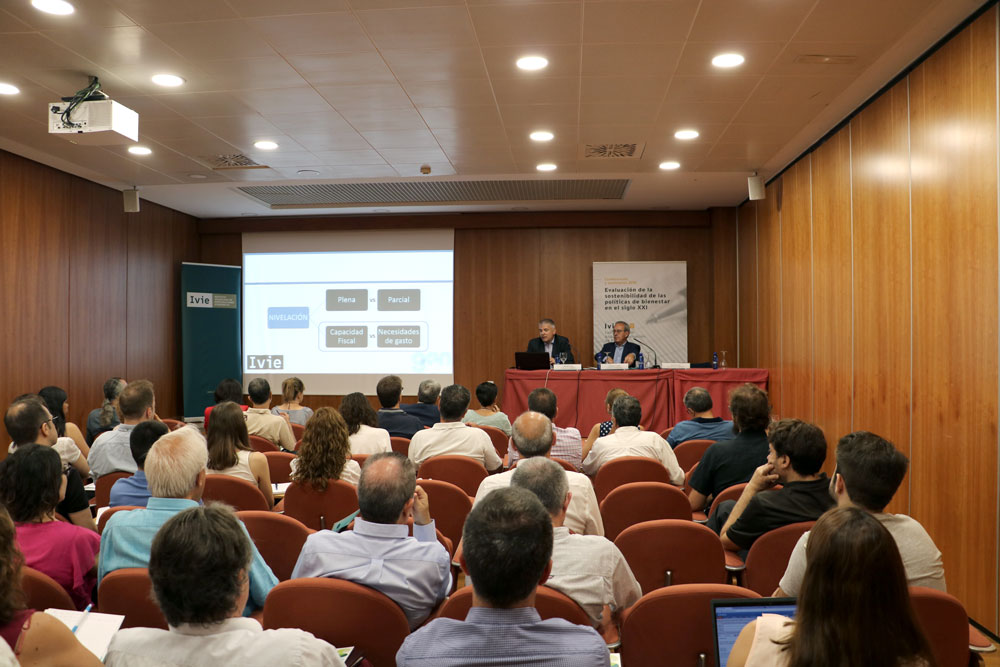News
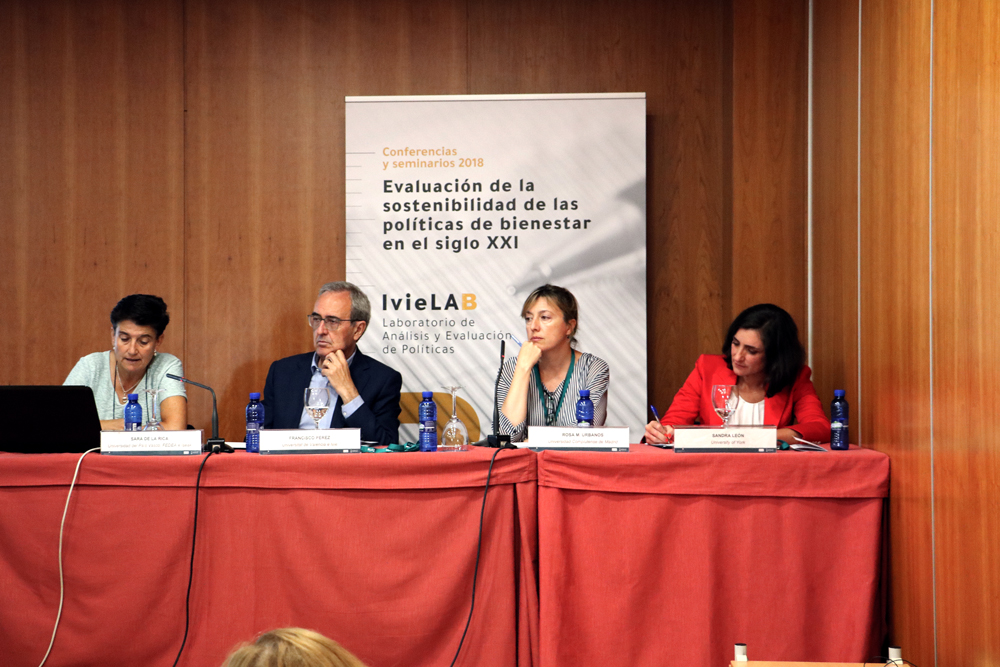
Spanish welfare expenditure per inhabitant is 50% higher in the Basque Country and Asturias than in the Balearic and Canary Islands
According to Sandra León, citizens do not attribute welfare policies to the correct administration level
The IvieLAB seminar, “Welfare policies in the Spanish State of Autonomies”, has analyzed welfare state differences as experienced by citizens across regions. The experts point to significant variations among the different Spanish regions that result in unequal access to basic public services.
Francisco Pérez, Ivie’s Research Director, points to a difference of over 50% in basic public expenditure per head between the highest (Basque Country and Asturias) and lowest (Balearic and Canary Islands) spending regions. Although welfare spending overall has grown since 2000, increases by function have been uneven. Spending has increased in pensions and social protection (corresponding to social security and the central government), whose weight in total expenditure terms has increased by 4.6 percentage points. In contrast, while spending on health and education (the responsibility of the regional governments) has also increased in absolute terms, its weight has fallen 5.6 percentage points due to the severe cutbacks experienced during the crisis.
This new IvieLAB seminar was divided into two sessions. Participating in the first session, along with Francisco Pérez, were Guillem López (Professor at the Universitat Pompeu Fabra and Director of CREI) and Santiago Lago (Professor at the University of Vigo and Director of the Governance and Economic Research Network, GEN), who discussed the relationship between autonomy and resource leveling in a decentralized state. Santiago Lago indicated that while there is much insistence in Spain on expenditure leveling at the regional level, the local level is largely overlooked. Guillem López indicated that, in his view, it is preferable to base resource leveling for the autonomous regions on fiscal capacity rather than on expenditure needs, which are very difficult to calculate.
The second part of the seminar, with presentations by Rosa M. Urbanos (Professor at the Complutense University of Madrid), Sara de la Rica (Professor at the University of the Basque Country and member of ISEAK) and Sandra Leon (Professor at the University of York), focused on equal access, efficiency and evaluation of public welfare policies.
Rosa M. Urbanos pointed out that, while differences in health expenditure between regions are important, more spending per capita does not mean a better quality of care or better health results, since other factors, such as quality of life, are more significant.
Sara de la Rica focused on the good and bad points of the guaranteed minimum income program implemented in the Basque Country, which costs the regional government 450 million euros annually. In her view, while a guaranteed minimum income contributes to reducing inequality overall, it still leaves many households in extreme poverty according to international standards.
Finally, Sandra Leon explained how citizens do not always attribute welfare responsibilities to the correct administration level, indicating, for instance, that “the crisis has caused citizens to assign greater political responsibility for all functions to the central government rather than to the regional governments.”


